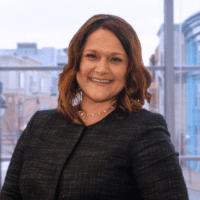- Does virtual learning count as a school closure for purposes of FFCRA leave?
- Yes. The Department of Labor (DOL) issued guidance confirming that when the physical location of a school or child care facility is closed, regardless of remote options.
- Is an employee entitled to FFCRA leave if their child’s school is providing a hybrid teaching schedule?
- Yes. An employee is eligible for FFCRA paid leave on days when the child is not attending school in person but is engaged in remote learning from home – if an employee needs the leave to care for the child and there is no other suitable person available. This is not intermittent leave and therefore no employer approval is required.
- Is an employee who has been teleworking successfully without the need for FFCRA leave to care for their children entitled to leave based upon the school’s schedule?
- Yes. Employees are eligible for FFRCA leave even if they previously did not need the leave to care for a child.
- Is an employee eligible for FFRCA paid leave when their child’s school is starting the school year remotely but continuing to evaluate reopening for in-person attendance later?
- Yes — at least, while the child’s school remains closed. If the school reopens and the child can return in person, the availability of paid leave will depend on how the school reopens (e.g., whether there is staggered in-person attendance or the option to continue remote learning).
- Is an employee eligible for FFCRA paid leave when their child’s school gives the option of the child attending in person or participating in remote learning and the child is signed up for the remote learning option?
- No. The child’s school is not “closed” for COVID-19-related reasons. Because the school is open for in-person attendance, FFCRA paid leave is not available to care for the child — regardless of whether the employee is given the remote learning option.

